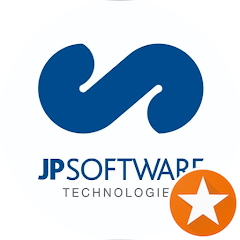Trademark Vs Copyright – What’s The Difference? and which we should choose?
As a new entrepreneur, protecting your intellectual property can be a daunting task. Trademarks and copyrights are two of the most important ways to safeguard your business assets. Understanding the difference between these two types of intellectual property can be critical to your success. At their core, trademarks, and copyrights serve distinct purposes. In this post, we’ll delve deeper into trademark meaning and copyright meaning and the differences between trademarks and copyrights, including the scope of protection they provide, and how they can benefit your business.
Table of content
- Difference between Trademark and Copyright
- What does Trademark protect?
- What does Copyright protect?
- Trademark Vs. Copyright
- Which one you should choose?
- Conclusion
Difference between Trademark and Copyright
At their, core trademarks, and copyrights serve distinct purposes. A trademark helps to identify and distinguish the source of goods or services of one party from those of others. Copyright, however, protects original works of authorship, such as books, music, and art work. To gain a deeper understanding of these two types of intellectual property, it’s important to take a closer look at the specific types of content each one protects and how they differ from each other.
What is Trademark?
A trademark is a symbol, word, phrase, or design that identifies and distinguishes the products or services of a particular company from those of its competitors. In other words, a trademark’s meaning is that it acts as a brand identifier that helps consumers recognize and remember a particular company and its offerings. When a consumer sees a particular trademark, they associate it with a particular company and its products or services. In order to obtain a trademark, a business must go through a registration process with the appropriate government agency, Once a trademark is registered, the owner has exclusive rights to use the trademark in connection with their products or services. There are 4 types of trademarks.
What is Copyright?
Copyright protects creative works such as literature, music, films, and art. Its purpose is to prevent unauthorized use, distribution, and reproduction of original works. In other words, Copyright meaning is that Copyright is a legal right that gives creators the ability to control the use of their original work, such as books, music, movies, and artwork. It is designed to protect their work from being used or copied without their permission, ensuring that they can profit from it and have the final say in how it is used. Copyright law grants exclusive rights to the creators and helps them control the use of their work, giving them the ability to profit from it. Infringing on copyright can lead to legal consequences. There are 5 types of copyright.
What does Trademark protect?
A trademark is a form of intellectual property that protects words, phrases, symbols, designs, or other distinctive elements that identify and distinguish a company’s goods or services from those of its competitors. A trademark can also help companies prevent others from using their brand name to sell inferior or counterfeit products, which can harm the brand’s reputation and sales. The legal protection provided by a trademark can extend to all forms of commercial use, including advertising, labeling, packaging, and selling of goods and services.
What does Copyright protect?
Copyright protects original works of authorship such as literary, musical, artistic, and dramatic works, as well as software, films, and sound recordings. It gives the owner of the copyrighted work the exclusive right to reproduce, distribute, perform, display, and make derivative works based on the original work. Copyright protection ensures that creators have the right to control the use and distribution of their works, and also enables them to monetize their creations.
Trademark VS. Copyright
| Basis of difference | Trademark | Copyright |
| Definition | A symbol, word, phrase, or design that identifies and distinguishes the source of goods or services | The exclusive legal right given to the creator of original works of authorship |
| Protection | Protects logos, brand names, and slogans that identify products or services in the marketplace | Protects original works of authorship, such as literary, artistic, musical, and dramatic works |
| Registration | Registration is not required, but it is recommended to prevent others from using similar marks | Registration is not required but provides additional legal protections |
| Duration of Protection | Can be renewed indefinitely as long as it is actively being used in commerce | Lasts for the life of the creator plus 70 years |
| Infringement | Occurs when someone uses a similar or identical mark in commerce without permission | Occurs when someone uses an original work without permission |
| Example | Apple’s name and logo,McDonald’s “I’m lovin’ it” slogan,Coca-Cola’s distinctive script font. | The Harry Potter series of books by J.K. Rowling,The Mona Lisa painting by Leonardo da Vinci,The song “Bohemian Rhapsody” by Queen. |
What you should choose?
As a new entrepreneur, you should consider both trademark and copyright to protect your intellectual property. Which one to choose depends on the nature of your business and the type of assets you want to protect. If you have a unique brand name, logo, or slogan that you want to use to identify your products or services, you should consider registering a trademark. On the other hand, if you create original works such as music, artwork, or literature, you should consider copyright protection to prevent others from using, distributing, or reproducing your works without your permission. It is always a good idea to consult with a lawyer or a legal professional to help you determine the best strategy for protecting your intellectual property.
Conclusion
In conclusion, trademarks, and copyrights are both crucial tools for protecting your intellectual property as a new entrepreneur. While trademarks protect brand identifiers such as logos and slogans, copyrights protect original works of authorship like music, literature, and artwork. Choosing which to use depends on the nature of your business and the type of assets you want to safeguard. It is advisable to consult with a legal professional to determine the best strategy for protecting your intellectual property and ensuring the long-term success of your business.

Why Professional Utilities?
At Professional Utilities, we leverage our industry knowledge and expertise to help businesses navigate complex regulations, minimize risks, and optimize operations for maximum efficiency and profitability.

One Stop Corporate
Solution

PAN India
Services

Free Expert
Assistance

Google Verified
Business

Dedicated Support
Staff



.svg)








